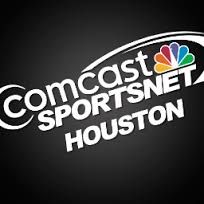Astros Take Swings to Dismiss CSN Houston Bankruptcy Petition

The Houston Astros have filed a motion to dismiss the involuntary Chapter 11 bankruptcy case that was brought late last month against the parent company of regional sports network, Comcast SportsNet Houston.
The Astros -- with 46%, the largest stakeholder in the RSN that launched on Oct. 1, 2012 -- cited a number of legal reasons why the petitions by four Comcast affiliates seeking to restructure the partnership and have the court appoint an interim trustee to administer the service if it remains in bankruptcy proceedings should be dismissed.
The Astros filed their motion on Oct. 7 with U.S. Bankruptcy Court Judge Marvin Isgur in the Southern District of Texas in response to the Sept. 27 proceedings brought by four creditors with ties to Comcast – National Digital Television Center, CSN California, Comcast Sports Management Services and Houston SportsNet Finance. They aver that CSN Houston has exhausted the $100 million loan from Houston SportsNet Finance that was used to build studios and for start-up/operational costs with the RSN, which can’t meet its financial obligations because of ‘total gridlock’ among the partners when it comes to key operational decisions. The Houston Rockets, which have yet to weigh in on the legal proceedings, own 32% of the service, while Comcast/NBCUniversal controls 22%.
In addition to Comcast, CSN Houston has only been able to secure carriage with a handful of smaller distributors, giving it coverage in just 40% of the 2.2 million TV households in the Houston DMA. The network, which has reportedly been asking for a monthly subscriber fee of $3.40 has been unable to come to terms with DirecTV, Dish Network, AT&T U-verse, Suddenlink and Time Warner Cable in Texas and the other four states in the RSN’s territory.
As such, its primary revenue affiliate revenue stream has been curtailed. Moreover, with a corporate governance structure that requires unanimity among the four members – one each for the Astros and Rockets and a pair for Comcast – the bankruptcy petitioners in their own Oct. 7 document claimed “the impasse among the parties that control the network has prevented [it] from entering into certain additional agreements for distribution…As a result, the network is unable to generate the revenues necessary to meet its obligations and sustain its business.” The petitioners also said in their filing that the network has been “unable to borrow additional money and it cannot pay its bills as they come due.”
In its motion, the baseball team wrote that “Comcast has delivered only informal proposals to enter long-term affiliations agreements with undervalued rates that would jeopardize the Astros future success in both baseball and business operations.”
The Astros said CSN Houston failed to make rights fee payments to them that were due on July 31 and Aug. 30. The team said it informed the network that by contract it would terminate its agreement and reclaim their broadcast rights as of Sept. 30 if the rights payment was not made by Sept. 29. According to the filing, Comcast cut that off at the pass by filing the bankruptcy case on Sept. 27, a move the ballclub described as “as an end run.”
Multichannel Newsletter
The smarter way to stay on top of the multichannel video marketplace. Sign up below.
The Astros’ response also touched on several legal points aiming at the legitimacy of the bankruptcy petition. The club mandates that three or more entities must have “undisputed bona fide claims,” stating that two of the Comcast company claims were “unauthorized oral contracts.” Moroever, the Astros did not consent to them.
The team also said that its media rights deal is a personal services agreement as well as a trademark agreement. As such, the media rights pact cannot be assigned to another party through bankruptcy or without the Astros’ consent.
The Astros also said that the case should be dismissed because there is no “reasonable likelihood” that the RSN can be reorganized in bankruptcy court. Even if the ownership structure is changed under bankruptcy, according to the team, the Astros will retain their broadcast rights and is free to sell them to another party.
The petitioners said that Houston SportsNet Finance “would be prepared to make a bid to acquire the network under a reorganized plan or substantially all of its assets.”
FS Houston previously held the rights to Astros and Rockets games. The teams in October 2010 entered into an agreement with Comcast to form CSN, which eventually bowed on Oct. 1, 2012, When Jim Crane bought the club from Drayton McClane in November, 2011 he also gained the Astros’ interest in the RSN.
The Astros rank among the most anemic teams in baseball history having lost 106, 107 and 111 games during the 2011, 2012 and 2013 campaigns, respectively. Conversely, the Rockets were a surprising NBA playoff entrant last season and have acquired the talented, but temperamental center Dwight Howard, a move that could vault them toward the top of the league’s Western Conference.
Given the RSN’s governance issues and the hearing date of Oct. 28, it’s highly unlikely that the Oct. 30 tipoff of the Rockets season will spur any new carriage agreements in time for the start of the 2013-14 NBA campaign.
